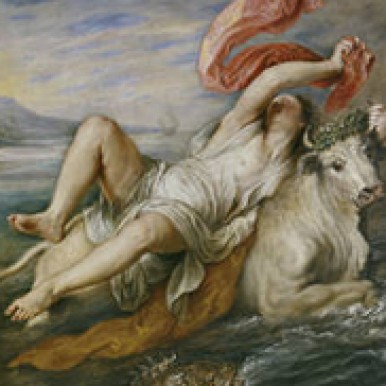Madrid, 27th - 28th February and 1st March 2014
Organised by L’internationale, European network of museums, and Fundación de los Comunes within the framework of “The Uses of Art”

Madrid, 27th - 28th February and 1st March 2014
Organised by L’internationale, European network of museums, and Fundación de los Comunes within the framework of “The Uses of Art”
The project of a united Europe, as conceived after the Second World War, is largely exhausted. Little credibility remains in that “cunning of European reason” that believed it could overcome the causes of the continent’s historical tragedy (war, dictatorship and fascism, exploitation and inequality, colonialism and racism) through the virtues of a “social market economy” and the old geopolitical combination of European nation-states, rather than through a decisive constituent project. The causes of this situation are varied and enormously complex, but from a historical point of view, it is possible to identify certain landmark events in this long agony. On the one hand, the fall of the Berlin Wall and the end of the Cold War, which reduced the need for a united Europe that was equally anti-Soviet and anti-fascist, and on the other, the shift towards neoliberal ideas in the EU process during the 90s compounded by the failure of the European Constitution process, which contributed to a generalised feeling of indifference and disenchantment with the European project among the citizenry. This explains the establishment, under the pretext of the global debt crisis, of what Étienne Balibar has called the “commissarial dictatorship” of the Troika.
There is a new “abduction of Europe”, but this time it is not Zeus, but the imposition of a financial logic that is the abductor, holding her to an impossible ransom: democracy, social rights, the emancipation of victims of colonialism, equality and fraternity on the continent. But as the dream of European reason fades, the time of monsters begins. Whether beloved or condemned, the European Union is an allusion, albeit an imperfect and contradictory one, to the emancipatory traditions of this continent since the Enlightenment: a Europe united by the ideas of social and political emancipation, a Europe that goes beyond the national borders of the post-colonial States and their history of war and periodic destruction. The attempted return to the “sovereignty” of nation-states in the current financial and institutional catastrophe creates a kind of mirage that makes it easy to forget that in Europe, sovereignty, nationalism and war have always been inseparable.
The event The New Abduction of Europe. Debt, War, Democratic Revolutions hopes to lay the foundations for a radically new European cultural and political agency, driven by the urgency of the situation. It seems futile to call for a Eurocentric humanist consciousness if such consciousness is incapable of reflecting the non-Europe within Europe: the results and challenges of its colonial, imperialist and fascist past, of the modifications taking place in the world system and of the end of liberal public spheres and the emergence of the network of networks. It is vital that we call for new actors.
It is probably fair to say that it has been the world of cultural and artistic production, squeezed between increasing instability and individualisation, as well as the new social movements centred around migration (which have revealed the post-colonial skeletons in Europe’s closet) that over the last two decades have, more than anyone else, practiced and theorised Europe as the smallest possible consistent expression in the political realm. Perhaps we should examine the Arab springs, or movements such as Spain’s “May 15” protests, Syntagma Square in Greece, or the events at Istanbul’s Taksim Gezi Park, to revive hopes for a European spring that can bring an end to the current nightmare. It is impossible to think about a European future without first examining, interpreting and disseminating these experiences, which are not a thing of the past but are fully alive and absolutely of the present.


